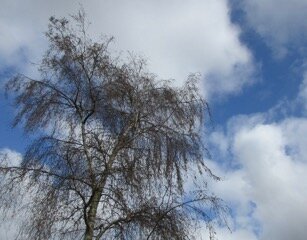What a wonderful bird the Zoom are
When we there we here almost;
When we mute we speak almost.
We ain’t got no sense hardly;
We ain’t got no near hardly either.
When we write, we write what we ain’t got almost.
The last weekend in January 2021 has seen the most wonderful flurry of writing events. It is so cheering to hear news of so many of you out there meeting remotely, writing together, sharing closely. Thank you so much, to all of you who take time to organise such meetings.
They mean a great deal.
This weekend I joined the London group led by David Marshall. There were seventeen of us on screen, sharing as a whole group and moving in and out of smaller groups to write and talk together. As always, the session was beautifully prepared and generously shared. David brought such a variety of ideas and resources, so there was great pleasure in writing for ourselves, and much to be taken on into our various classrooms, both face to face and remotely.
Many of us were very taken with an idea from a Poetry Society worksheet developed with the Orwell Society. All the ideas, centred round poetry and political language, are of interest. David introduced us to Malika Booker’s poem, That Force-ripe Morning and to a form new to me, invented by Karen McCarthy Woolf, in which the poet takes another text – in the case of Malika Booker, a political speech - and answers back to it.
That Force-ripe Morning takes the words of a speech by Nigel Farage after the referendum vote. She creates couplets/ couplings using words from the speech in the first line, and her own words answering back in the second:
Dare to dream that the dawn is breaking,
like cracked eggs in we sky, this force-ripe morning
on an independent United Kingdom
where crapo croak he song each morning
this, if the predictons are right, this will be a victory
grabbed like flies snatched with fork tongue flickering.
We found the whole business of answering back to poetry and prose, to poems we want to take issue with, to advice we want to question, full of energy and promise.
Here, also, is the opportunity to use our own voices, our own language, in response to those who speak differently, think differently. Here is Karen McCarthy Woolf, quoted by The Poetry Society.
I wanted to integrate the two voices, but also to subvert or extend what the original writer was
saying. The cadences of the original determined to some degree the tone of the new text. [...] The
response line is intended to act as an asymmetric mirror of the original. You might have rhyme, assonance, repetition, or a variation. [...] The ‘coupling’ is a response to both prose poems and found poems – and to my own experience as a Jamaican-English hybrid Londoner. I think the impulse to unify seemingly disparate parts is part of a larger poetic.
The Poetry Society worksheet can be found here.
David also introduced the National Portrait Gallery’s exhibition of community based photographs of the Lockdown 2020. I urge you to have a look at it if you have not already seen it.
The last time that this group met face to face, this time last year, was at the National Portrait Gallery. We long for the time when we will be face to face again, manoeuvring our pots of Earl Grey tea and deliberating between chocolate brownie and lemon drizzle. In the meantime, these groups on Zoom have been lifelines. And we have been inventive and compassionate. Jan told me how she has been writing weekly with a friend, the space both a motivation to write and a time for friendship through writing. It has kept her going, she told me. “It’s a comfortable place, It’s a world of words. It’s your own place where you can go to.”
We need those places. Theresa Gooda and her Sussex writers explored a sense of place. She writes “It turns out of course that place resonates more strongly than ever when we are ‘locked down’.”
Alison Jermak has circulated around her group, a wonderful on-line booklet of ideas for diary writing, remembering Anne Frank at this time.
Marjory Caine and her group wrote about winter weather on Saturday. As always, Marjory brought a treasure trove of resources to the group. I was only sorry not to be able to join them for sharing.
Marjory did, however, mention Gigantic Cinema A Weather Anthology edited by Alice Oswald and Paul Keegan. Since it was the second time I had heard the title recommended in as many days, I pass the recommendation on to you. Here’s a link to the Scottish Poetry Library’s review.
And I could not resist including Marjory’s prompt for a short-write:
‘A thunder-storm came on while we were at the inn, and Coleridge was running bare-headed to enjoy the commotion of the elements’
Write for 10 minutes on an experience, real or imagined or both, of winter weather. Place a character or two in the landscape/cityscape, ‘bare-headed’ and let them loose!
Thank you, Marjory! And thank you and good wishes to all of you who are still meeting and writing together. We are so lucky!




